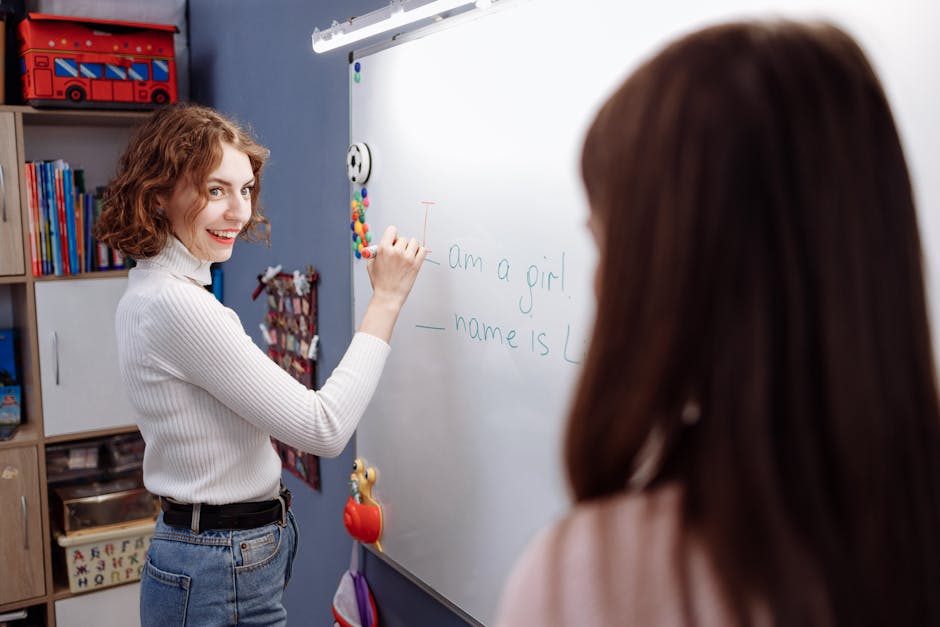Essential Skills Every Student Should Learn
In today’s fast-paced world, acquiring the essential skills every student should learn is more important than ever. These skills not only enhance academic performance but also prepare students for the challenges of future careers and personal growth. This article outlines the crucial abilities that every student ought to master to ensure success in school and beyond.
Communication Skills: A Key Element of Essential Skills Every Student Should Learn
Effective communication is one of the essential skills every student should learn. It encompasses both verbal and written communication, as well as active listening. Strong communication skills enable students to express their ideas clearly, collaborate with peers, and engage with instructors in a meaningful way. For instance, students can improve their public speaking by participating in group presentations or debating clubs, which not only builds confidence but also enhances their ability to convey thoughts succinctly.

Critical Thinking and Problem-Solving: Essential Skills Every Student Should Learn in the 21st Century
Another pivotal skill is critical thinking. In a world filled with information, the ability to discern credible sources and evaluate arguments critically is vital. Students should be taught how to analyze problems from different angles and develop effective solutions. Engaging in activities like puzzles, case studies, and real-world problem solving in subjects such as science and social studies can improve these skills. Cultivating critical thinking prepares students not just academically but also equips them to navigate complex situations in life.
Time Management: Among the Essential Skills Every Student Should Learn
Time management is often overlooked but is one of the essential skills every student should learn for academic success and personal productivity. Learning how to prioritize tasks and allocate time effectively can lead to improved performance and less stress. Students can benefit from tools like planners or digital calendars, where they can set deadlines for assignments and plan study times. This practice not only enhances academic efficiency but also instills a sense of responsibility.
- Set clear academic goals.
- Break larger projects into manageable tasks.
- Limit distractions during study sessions.
- Regularly review and adjust plans as needed.

Emotional Intelligence: An Essential Skill Every Student Should Learn
Emotional intelligence (EI) is another vital area that needs to be emphasized in educational settings. It encompasses the ability to understand and manage one’s emotions, as well as empathize with others. Developing EI can improve interpersonal relationships and foster a positive learning environment. Schools can promote emotional intelligence by integrating social-emotional learning (SEL) programs, which contribute to better academic outcomes and personal wellbeing. For more on emotional intelligence and its significance, visit Psychology Today.
The curriculum should be designed to include not only traditional subjects but also these essential skills every student should learn. By focusing on communication, critical thinking, time management, and emotional intelligence, we can cultivate well-rounded individuals ready to face the multifaceted challenges of the modern world. Various educational resources, such as Edutopia, provide additional strategies and insights into integrating these skills into everyday learning.
Ultimately, the essential skills every student should learn serve as foundational tools that will assist them in their academic journey and lay the groundwork for lifelong success. Embracing these skills will not only equip students for the challenges of their education but also prepare them to thrive in their future careers and personal life. For students, parents, and educators alike, fostering these skills is crucial in ensuring a brighter, more successful future.
Student Skills for Critical Thinking: Building Essential Competencies
In today’s fast-paced world, student skills for critical thinking have become more crucial than ever. The ability to analyze information, question assumptions, and make informed decisions is a vital competency for academic success and future career prospects. In this article, we will explore essential skills that enhance students’ critical thinking abilities and provide practical tips on how to cultivate these skills.

Fundamental Student Skills for Critical Thinking
To excel in critical thinking, students must develop several key skills. These skills not only assist in academic pursuits but also prepare students for real-world challenges. Here are some foundational student skills for critical thinking:
- Analytical Skills: The ability to break down complex information into simpler parts is essential. Students should practice analyzing data, arguments, and opinions.
- Problem-Solving: Students should learn to approach problems with a creative mindset, exploring different solutions and evaluating their potential impact.
- Reflection: Taking time to reflect on one’s own thought process fosters a deeper understanding of personal biases and decision-making patterns.
- Research Skills: Effective research is crucial for gathering credible information. Students should know how to find, evaluate, and synthesize relevant data.
- Effective Communication: Articulating thoughts clearly and persuasively is a significant aspect of critical thinking. Students must develop both written and verbal communication skills.
Enhancing Student Skills for Critical Thinking Through Practice
Building student skills for critical thinking requires consistent practice. Here are some effective strategies students can implement to enhance these skills:
- Engage in Discussions: Participate in group discussions or debates to challenge ideas and viewpoints, fostering a deeper understanding of various perspectives.
- Write Reflective Journals: Keeping a journal can help students articulate their thoughts and reflect on their reasoning processes over time.
- Study Logic and Reasoning: Familiarizing oneself with logical frameworks can help students identify fallacies and strengthen their argumentation skills.
- Challenge Assumptions: Constantly question and examine assumptions, both in personal beliefs and in information presented by others.
Additionally, engaging with reputable resources can significantly enhance students’ skills for critical thinking. Websites like Edutopia provide valuable insights and strategies for educators and students alike.

Real-World Applications of Student Skills for Critical Thinking
The importance of student skills for critical thinking extends beyond academia. In the workplace, employers value employees who can think critically to solve problems and innovate. Critical thinking is essential in various fields, including science, technology, business, and healthcare. For instance, a study on critical thinking in the workplace highlights how organizations benefit from employees who can analyze situations thoroughly and make sound decisions.
By actively developing these skills, students can enhance their effectiveness in collaboration and leadership roles, making them valuable assets in any environment.
The cultivation of student skills for critical thinking is a journey that requires effort and dedication. By focusing on analytical, problem-solving, and communication abilities, students can prepare themselves not just for academic achievements but for successful careers as well. Embrace the challenge of enhancing your critical thinking skills today and unlock your full potential.
Essential Communication Skills for Students
In today’s fast-paced educational environment, mastering essential communication skills for students is crucial for success. Effective communication not only enhances academic performance but also fosters strong relationships and teamwork among peers. This article delves into the key skills every student should develop to thrive both in school and beyond.

Understanding the Key Essential Communication Skills for Students
To navigate the academic landscape successfully, students must hone various essential communication skills for students. These skills encompass verbal, non-verbal, and written communication techniques, each playing a significant role in comprehensive learning experiences. Below are some critical skills to focus on:
- Active Listening: Engaging fully with speakers and understanding their messages.
- Public Speaking: Effectively conveying ideas to groups, which builds confidence and persuasion.
- Empathy: Understanding and considering the perspectives of others to foster cooperation.
- Clarity in Writing: Crafting well-structured and concise written communication.
- Non-Verbal Communication: Using body language and facial expressions to enhance spoken messages.
Developing Effective Presentation Techniques as Essential Communication Skills for Students
Among the many essential communication skills for students, effective presentation techniques stand out. Students often face challenges when presenting in front of an audience due to anxiety or lack of experience. Here are some tips to improve presentation skills:
- Know Your Audience: Tailor your content to engage listeners with appropriate language and examples.
- Practice Groups: Rehearse your presentation with peers to receive feedback and reduce nerves.
- Use Visual Aids: Incorporate slides, charts, or videos to make your presentation visually appealing and informative.
- Maintain Eye Contact: Engage your audience by making eye contact, which also helps establish credibility.
- Invite Questions: Encourage audience interaction to enhance understanding and demonstrate knowledge.
Students can find additional tips and resources on improving presentation skills from Skills You Need and Toastmasters International.

Applying Essential Communication Skills for Students in Real-World Scenarios
Applying essential communication skills for students in real-world situations can greatly enhance career readiness. Here are some applications of these skills:
- Networking: Building relationships through effective dialogue during networking events.
- Team Projects: Collaborating with classmates in group assignments using clear communication.
- Internships: Showcasing skills in professional environments through effective interaction with supervisors and colleagues.
As students actively engage in these scenarios, they refine their communication skills, preparing themselves for future endeavors.
In summary, mastering essential communication skills for students is not merely beneficial but essential in achieving academic and professional success. Students who invest time and effort into developing these skills can expect to see improvements in their personal relationships and overall confidence. Start exploring various resources and opportunities to enhance your communication abilities today!
Essential Time Management Skills for Students
Time management is crucial for students, especially in today’s fast-paced academic environment. Developing essential time management skills for students can make a significant difference in their academic performance and overall well-being. With effective time management techniques, students can balance their studies, extracurricular activities, and personal lives, leading to success both in school and beyond.

Mastering the Essential Time Management Skills for Students
To successfully navigate academic challenges, students must master various essential time management skills. Here are key skills that can aid students in becoming more organized and productive:
- Prioritization: Identifying tasks that need immediate attention versus those that can wait is vital. Using methods like the Eisenhower Matrix can help clarify what to prioritize.
- Goal Setting: Establishing clear, measurable goals allows students to focus their efforts effectively. SMART goals (Specific, Measurable, Achievable, Relevant, Time-bound) are particularly useful.
- Scheduling: Creating a study schedule or timetable can keep students on track. Incorporating tools like planners or digital calendars can enhance their ability to stick to deadlines.
- Avoiding Procrastination: Recognizing triggers for procrastination and creating strategies to combat them can significantly improve productivity.
- Time Blocking: Setting designated blocks of time for specific tasks helps ensure that students allocate sufficient attention to each subject.
The Benefits of Essential Time Management Skills for Students
When students effectively implement their essential time management skills, they experience numerous benefits:
- Reduced Stress: By managing deadlines and workload effectively, students can lower their anxiety levels.
- Improved Academic Performance: Organizing study materials and focusing on key areas leads to better grades.
- Enhanced Productivity: With clear goals and priorities, students can accomplish more in less time.
- Better Work-Life Balance: Effective time management allows students to enjoy leisure activities while still fulfilling their academic responsibilities.
According to a study by the Research Gate, students who practice strong time management techniques achieve significantly higher academic success. By incorporating these skills into daily routines, students set themselves on a path toward lifelong success.

Implementing Essential Time Management Skills for Students
To fully harness the power of essential time management skills for students, practical implementation is necessary. Here are strategies to consider:
- Daily Planning: Spend a few minutes each morning or evening planning out tasks for the next day.
- Use Technology: Employ apps and tools such as Trello or Google Calendar to keep track of assignments and deadlines.
- Set Time Limits: When studying or tackling assignments, set specific time limits to maintain focus and efficiency.
By adopting these approaches, students can better manage their time and significantly improve their academic efficiency. Establishing these habits early can lead to a successful and fulfilling academic career.
Mastering essential time management skills for students is a valuable process that can greatly enhance their academic lives. By developing these skills, students can navigate their education and personal commitments with poise and efficiency. Start implementing these techniques today and watch your productivity soar!
Student Skills for Collaborative Learning: Enhancing Teamwork in Education
In today’s educational landscape, the importance of cultivating effective student skills for collaborative learning cannot be overstated. As classrooms become more focused on teamwork and collaboration, it is essential for students to develop specific skills that facilitate cooperation and group dynamics. This article will explore the necessary skills that enhance collaborative learning and provide actionable insights for both educators and students.
Essential Student Skills for Collaborative Learning
Collaborative learning is not just about working together; it requires a unique set of student skills for collaborative learning that enable effective teamwork. Here are some essential skills that students should cultivate:
- Communication: Clear and effective communication is crucial. Students must express their ideas and listen to others to ensure that everyone is on the same page.
- Conflict Resolution: In any group setting, conflicts may arise. Students need to be equipped with techniques to address and resolve conflicts constructively.
- Role Assignment: Understanding how to assign roles based on each team member’s strengths ensures that all aspects of the project are covered.
- Adaptability: Collaborative efforts often do not go as planned. Students must be adaptable to changes and open to adjusting their strategies.
- Commitment: A strong sense of responsibility for one’s contributions fosters a diligent work ethic that promotes group success.
Developing Student Skills for Collaborative Learning
To effectively develop the student skills for collaborative learning, educators can employ various strategies and activities. Here are some practical approaches:
- Group Projects: Assigning group projects that require teamwork can help students practice collaboration in a structured environment.
- Peer Feedback Sessions: Encouraging students to give and receive feedback helps improve communication and fosters a culture of trust.
- Workshops and Role-Playing: Interactive workshops that simulate real-world situations can help students develop conflict resolution skills and adaptability.
Additionally, incorporating tools and resources such as Edutopia’s guidelines on collaborative learning can provide educators with deeper insights into effective strategies.
Evaluating Student Skills for Collaborative Learning
Assessment is a crucial part of developing student skills for collaborative learning. Here are ways to evaluate these skills in students:
- Self-Assessments: Encourage students to reflect on their contributions and teamwork abilities after group projects.
- Peer Reviews: Implement peer evaluation to gauge how effectively students collaborate.
- Instructor Observations: Teachers can observe group interactions and provide feedback on areas for improvement.
For those seeking more in-depth understanding, exploring Teaching Channel’s resources on collaborative learning can be beneficial.
Building strong student skills for collaborative learning is essential for future success in academic and professional settings. By focusing on communication, conflict resolution, adaptability, and other key skills, educators can prepare students to work effectively in teams. We encourage educators, students, and institutions to embrace collaborative learning practices that foster these vital skills.


For the reason that the admin of this site is working, no uncertainty very quickly it will be renowned, due to its quality contents.
I truly appreciate your technique of writing a blog. I added it to my bookmark site list and will
naturally like your web site however you need to take a look at the spelling on several of your posts. A number of them are rife with spelling problems and I find it very bothersome to tell the truth on the other hand I will surely come again again.
I truly appreciate your technique of writing a blog. I added it to my bookmark site list and will
I really like reading through a post that can make men and women think. Also, thank you for allowing me to comment!